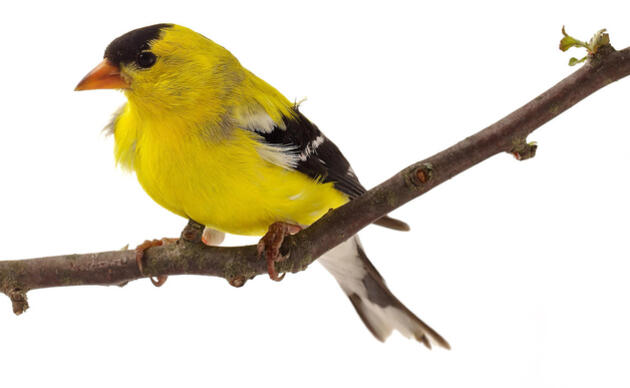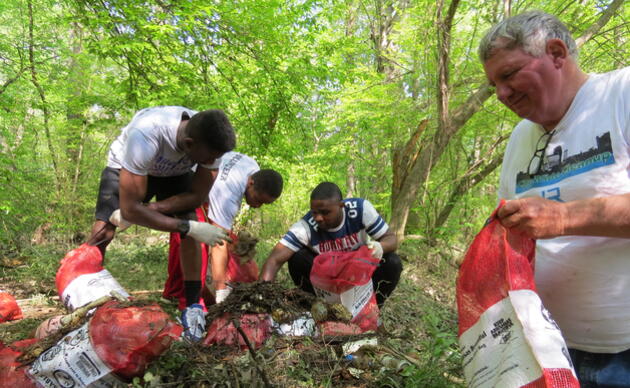Audubon Arkansas encourages Arkansans to vote NO on ballot Issue 1 on November 3. If passed, Issue 1 makes permanent what was initially put forth as a temporary 0.5% sales tax for maintaining, repairing and improving highways, roads and streets across the state.
Why does a bird conservation organization care about a sales tax for transportation? It isn’t about the regressive nature of a tax that doesn’t put the burden on the primary users of roads. Nor is it about funding the unnecessary widening of I-30 on the side of town where the Little Rock Audubon Center sits. For Audubon, it is about the contribution of the Arkansas Department of Transportation’s (ARDOT’s) roads-only program to climate change.
The transportation sector is now the single largest source of greenhouse gas emissions in the United States. Audubon Arkansas supports actions that reduce tailpipe emissions from cars and freight trucks, such as expanding public transit systems, installing electric vehicle charging stations along highways, and improving the livability of urban centers. Without substantial climate change mitigation, changes in climate and vegetation will alter plant and insect communities; influence availability of food, water, and shelter for birds; and will likely cause ecological disruption as species reshuffle. Over time, a complex suite of changes in climate and vegetation will inevitably affect Arkansas’s bird communities. National Audubon Society’s recent climate report, Survival by Degrees: 389 Bird Species on the Brink, found that 32 Arkansas bird species are climate vulnerable. However, that number drops by nearly half if we can slow the rate of global warming. The scientific consensus is clear. The only way to achieve a more favorable future for birds and people is to address the underlying causes of the changing climate.
Arkansas is one of a declining number of states with a roads-only state transportation program. If passed, Issue 1 will enshrine in our constitution a sales tax that funds business as usual for ARDOT with no incentive to change or invest in transportation projects other than road building and maintenance. If instead the current sales tax ends in 2023 as planned, stakeholders have the opportunity to bring ARDOT to the table to discuss how they can regain public support for this funding. Audubon believes ARDOT should offer multiple programs to solve the mobility needs of the state: bicycle and pedestrian projects; charging stations for electric vehicles; more pass through of funds to Cities and Counties for local transportation needs; programs to assist freight railroads and move road-damaging truck traffic over to rail; and public transit assistance in urban areas.
Not incidentally, road building also has implications for habitat protection and connectivity, air and water quality, livability and equity. To give an example, in 1991, my Audubon chapter, Audubon Society of Central Arkansas, was a plaintiff in an effort to stop Rebsamen Park Road along the Arkansas River from becoming a commuter thoroughfare. Audubon won that lawsuit. Then at the ballot box in 1992, Little Rock residents vetoed the commuter road plans. The result? Today we have the Big Dam Bridge, and the area from east of Murray Lock and Dam along the river west to I-430 has become a recreational mecca for birders, runners and cyclists. It¹s an incredible asset for Little Rock and used to recruit new businesses to the area.
When you cast your ballot this year, vote NO on Issue 1. Do it for the birds.



